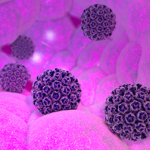Leading women in science: an interview with Dr Georgia Atkin-Smith
News, Sep 25 2025
Last month we launched our Leading Women in Science campaign, sharing the incredible work undertaken by Dr Chinedu Agwu who shared her experiences with The Biochemist.
This month, we’re celebrating Dr Georgia Atkin-Smith, a research scientist who since 2015 has embarked on a journey into cell death and has continued to drive her research forward ever since, turning her Honours year project into a career.
Initially focused on studying apoptosis and immune interactions in vitro through time-lapse confocal microscopy, Georgia’s research evolved to embrace intravital microscopy, a cutting-edge technique that captures real-time images of cell death and immune response inside living tissue.
Georgia’s research is helping scientists better understand the fundamental processes of life and death inside the body, paving the way for breakthroughs in cell research.
We asked Georgia some questions about her journey.
Can you tell us about the most rewarding moment?
“My most rewarding scientific moment has actually been very recent experience. Monitoring phagocytosis in vivo has traditionally been a huge challenge for the field. However, after years of optimising our intravital imaging approach and establishing different pre-clinical models, we have finally generated an elegant system to directly monitor the engulfment of dying cancer cell cells in vivo in response to therapy.”
What has been the greatest challenge in your career so far?
“The transition from PhD to postdoctoral researcher was particularly difficult. Balancing overlapping responsibilities between my old and new labs, learning new techniques, and adapting to heightened expectations made for an overwhelming start. In hindsight, I made some inefficient career choices that limited my initial progression post-PhD.”
If you could give one message to aspiring women in stem, particularly those balancing career and family, what would it be?
“You must surround yourself with good people! Work in a supporting team, with a mentor that inspires you, drives you and is also understanding. It is possible to ‘have it all’ (work, family, success etc) but you definitely cannot do it alone. So, make sure that you embed yourself in a research environment that will enable you to succeed and support whatever life choices you want to make.”
Georgia acknowledged the challenges she has faced but the support of her organisation, strong mentorship and supportive network have inspired her commitment to champion the next generation of scientists.





